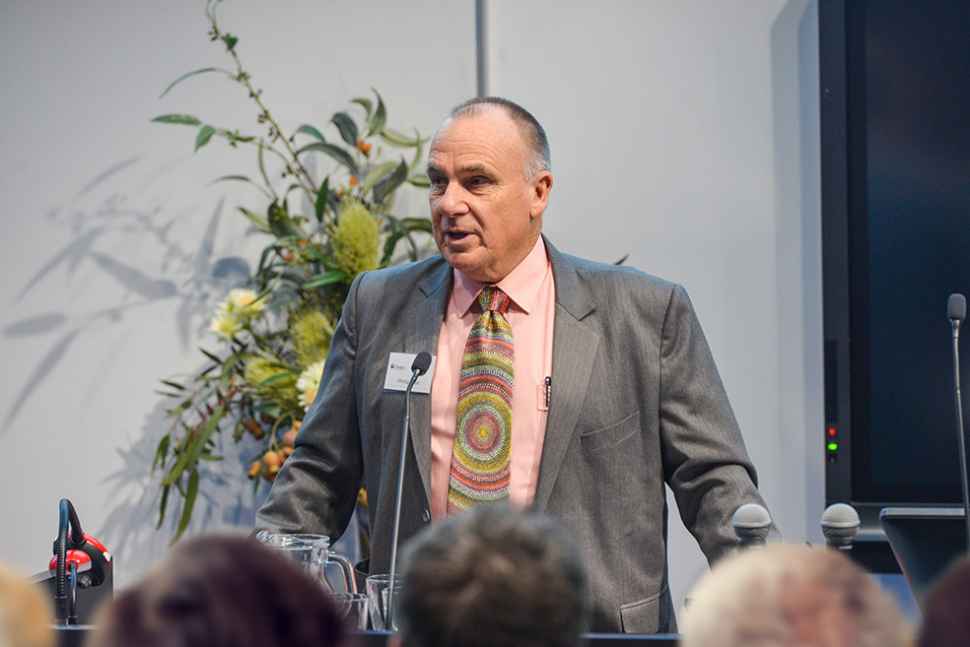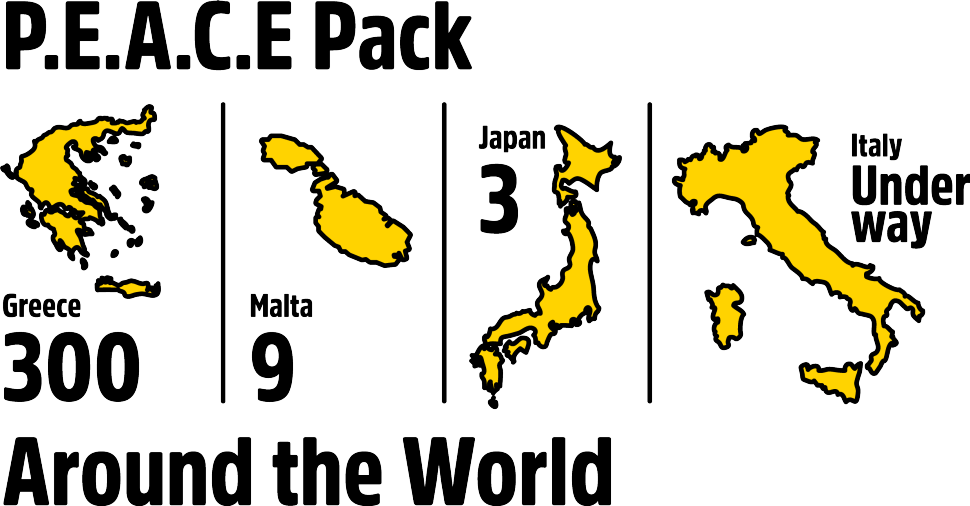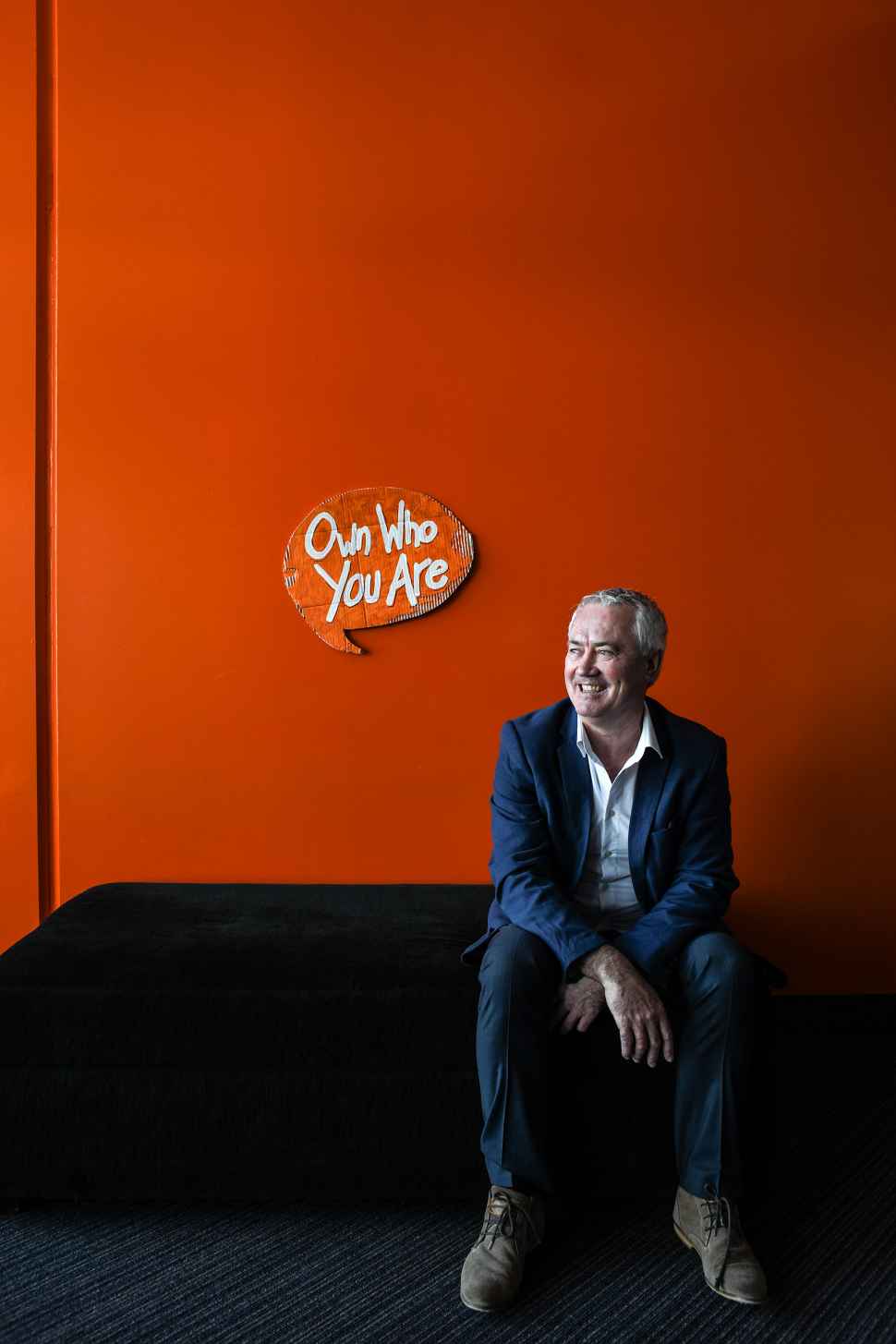Hello my friend in desktop mode.
Hello my friend in desktop mode.
Hello again my friend in desktop mode.
Hello again friend in mobile mode.
CREATING BULLY-FREE SCHOOLYARDS
How an 8-week program cut a local school's rate of bullying in half
Lead researcher: Professor Phillip Slee | College of Education, Psychology and Social Work
Main image: Tony Mahar, Brighton Secondary School
Back in 2014, Brighton Secondary School was worried about bullying in the schoolyard. Although Brighton had ‘an average level of bullying,’ that statistic means that about 1 in 5 students were being bullied at least once a week. Almost all young people will be confronted by bullying at some point as victim, bully or bystander. But many schools are taking action; they’ve enlisted the help of child development psychologist and researcher, Professor Phillip Slee.
Bullying first sparked Phillip’s interest when he attended a presentation on the rate of bullying in European schools by a visiting Swedish researcher. He wondered whether the same statistics applied to Australia. Drawing on his past life as a teacher, Phillip created a survey to investigate the matter. What he found was staggering. Bullying is pervasive in Australian schools—worse than much of Europe. There are over 100,000 kids getting bullied every day. As Phillip tells it, that’s enough to fill a football stadium each and every day. These kids are subject to physical bullying, emotional bullying, exclusion bullying and cyber-bullying. The school environment and the rise of cyberbullying makes it difficult to escape—and if a child is bullied in primary school, there’s a 53% chance they’ll also be bullied in secondary school. Contrary to the widespread opinions Phillip encountered when he first started his research (‘it doesn’t do any harm,’ ‘it’s character building’ and ‘it teaches resilience’), he found that bullying has harmful physical, social and emotional consequences. Children and teenagers who have been bullied are more likely to experience depression, anxiety and suicide ideation.
Phillip started his advocacy by making submissions to parliamentary enquiries and calling for policy change (which he still does). In 2008, he and Dr Grace Skrzypiec pioneered the first version of the PEACE Pack. This 8-week intervention program is designed for schools and classrooms from reception to Year 12. Phillip hoped to teach students and staff about how to stop bullying, how to deal with bullying when it occurs, how to make students feel safe at school, and how to reduce the likelihood of students joining in bullying of others. The acronym can be broken down to:
· Preparation and consideration of the nature of bullying
· Education and understanding of the issues
· Action taken and strategies developed to reduce bullying
· Coping strategies for staff, students and parents
· Evaluation, review and celebration of the program

Lead Flinders researcher Phillip Slee presenting at the Student WellBeing and Prevention of Violence conference at Tonsley campus in 2016.
The highest levels of bullying are in the Baltic counties and in Russia; one in two children in those countries are seriously bullied. The lowest levels are in Swedish and Norwegian schools where it is about 2-3%. Australian schools sit at 15-20%.

Amazingly, the PEACE Pack cut down the rate of bullying at Brighton Secondary School to a low of 5% (originally 15-20%). Independent assessments have shown the same massive improvement across all schools using the program.
The PEACE Pack takes a whole-of-school approach that looks at how people build relationships, improve wellness, deal with negative emotions, avoid the ‘bystander effect,’ and develop anti-bullying school policies. Phillip breaks it down into two aims: first-order and second-order. The first-order calls for change to the individuals in the bully-victim cycle and builds the students’ skills to cope with bullying when it happens. It also places a focus on young people with special needs—who are especially at risk. The second-order involves changing the entire school culture; it looks at how school relationships, roles, policies and communication either encourage or discourage bullying.
Brighton Secondary School runs the PEACE Pack every year. School counsellor Tony Mahar—who met Phillip at a conference more than five years ago and is responsible for bringing the PEACE Pack to Brighton—sees the effect it is having on the kids, although he’s quick to add, ‘The data around the program is saying that it's fantastic’ as well. Brighton is now in the lowest category of schoolyard bullying and they’re aiming for zero bullying on campus. Others have followed in their path, with the PEACE Pack having expanded to over 350 schools across Australia, Greece, Italy, Malta and Japan.
Tony Mahar with some of the year 8 and year 12 students at Brighton Secondary School.
Bullying is different everywhere you go. With each school comes new challenges, so Phillip is constantly encountering the unexpected.
When introducing the program to Japan, Phillip discovered that bullying (or ‘ijime’ in Japanese) is centred on exclusion—with very little physical or verbal abuse. Being excluded from a peer group in Japan is far more psychologically damaging than in other cultures where different forms of bullying might be more prominent. So when they introduced the PEACE Pack to Japan, Phillip and his Japanese colleagues adapted the program to focus on exclusion bullying and group dynamics.
In the island Mediterranean nation of Malta, the PEACE Pack has been adapted to the Catholic and predominately single-sex school system. This ability to work with local teachers and make changes to the program mean that it can be effective anywhere—leading to groundbreaking achievements like the support of President Marie-Louise Coleiro Preca, who is leading a national roll out of the PEACE Pack in Malta.
There are also differences across age groups. In Australia, Phillip’s research found that the self-esteem and self-concept of teenage girls plummets from age 13 to 15, while the boys’ climbs higher. So in a class of Year 8 or Year 9 girls, the PEACE Pack can be adapted to focus on these issues.
Ultimately, the PEACE Pack is all about adapting to make schools safer, happier places. Phillip was raised in a small community that was always supportive, by parents who instilled in him a great passion for social justice. ‘I’m passionate about things being fair and having a good opportunity no matter who, what or where you are,’ he explains. ‘I want to create a safe place for kids to be, where they enjoy doing what they are doing and they can be their best possible selves. Reducing bullying is a very small part of what can be done, so I think that’s a very good thing for a school to be doing.’
The PEACE Pack is making a real difference in schools around the world—and it will continue to grow and adapt, as Phillip is far from done.


Lead researcher profile
Professor Phillip Slee is a trained teacher and registered psychologist, specialising in human development. He is Director of Student Wellbeing and Prevention of Violence at Flinders University. Phillip’s research interests include childhood bullying and aggression, child and adolescent mental health, and practical and policy implication of his research. He has presented workshops and lectures nationally and internationally, and published over 100 refereed papers, 25 book chapters and 15 books.
Story and visuals by Flinders University Web Transformation Team
![]()
Sturt Rd, Bedford Park
South Australia 5042
South Australia | Northern Territory
Global | Online
CRICOS Provider: 00114A TEQSA Provider ID: PRV12097 TEQSA category: Australian University








